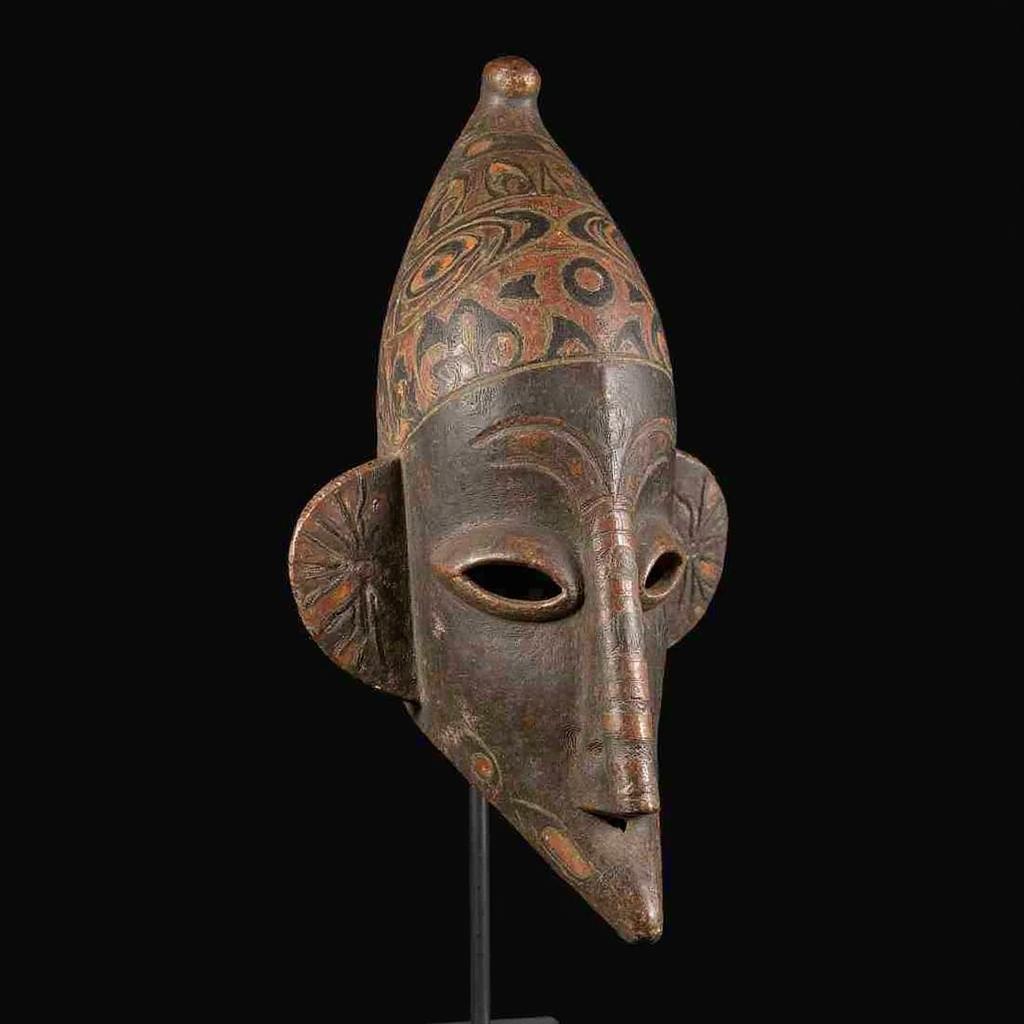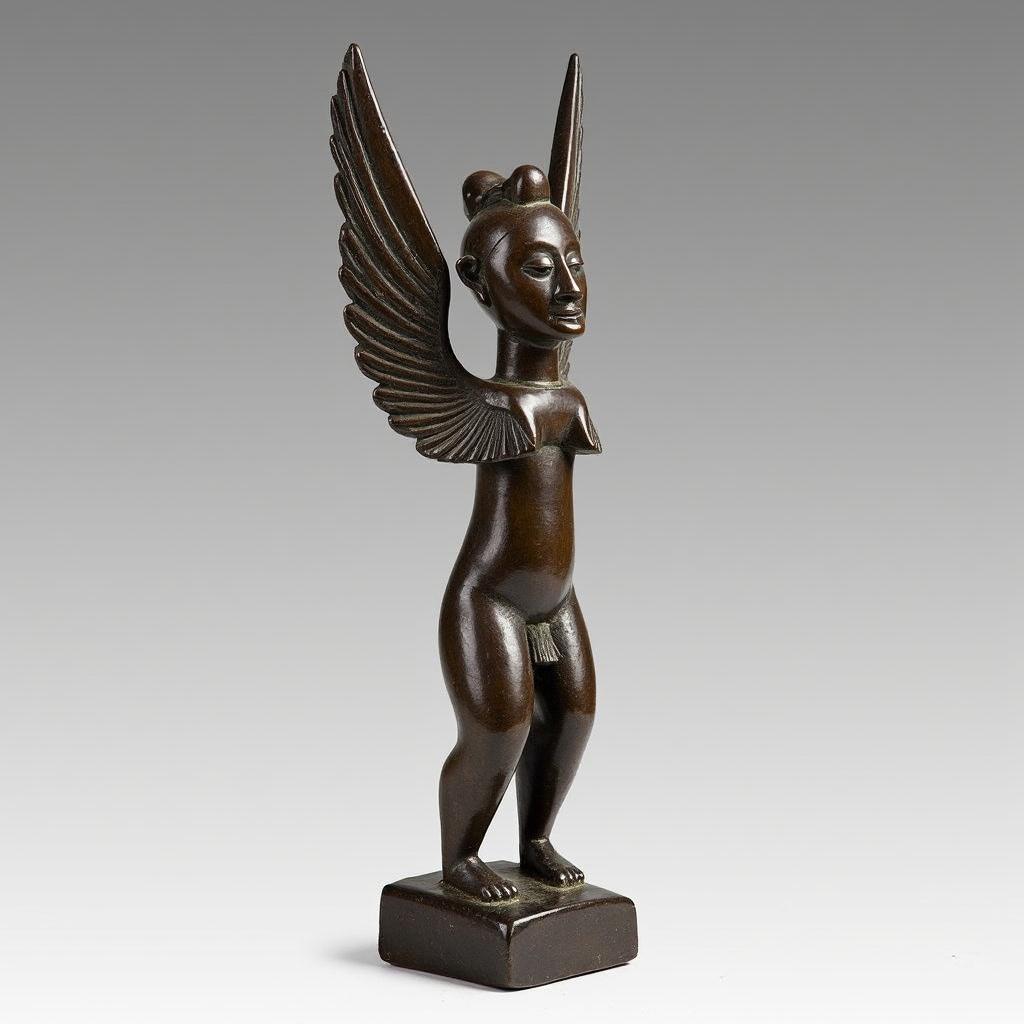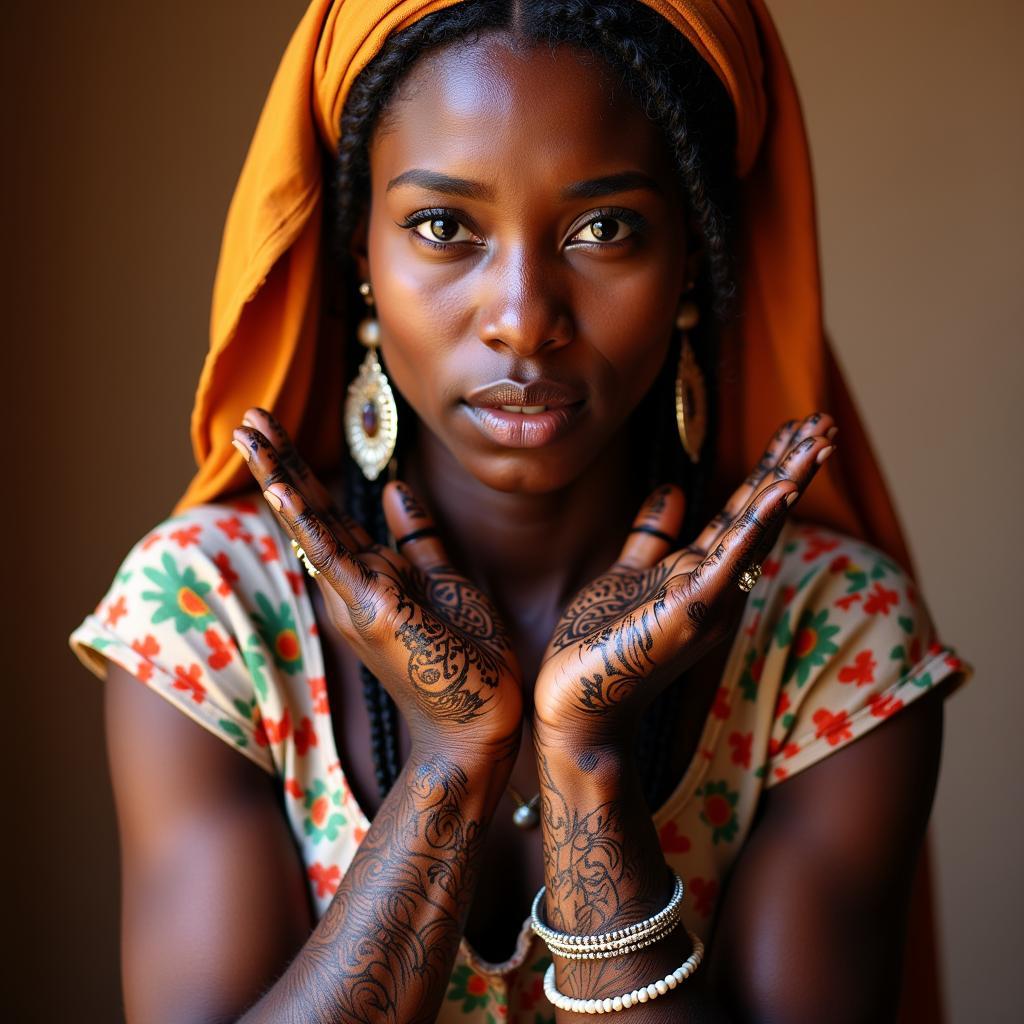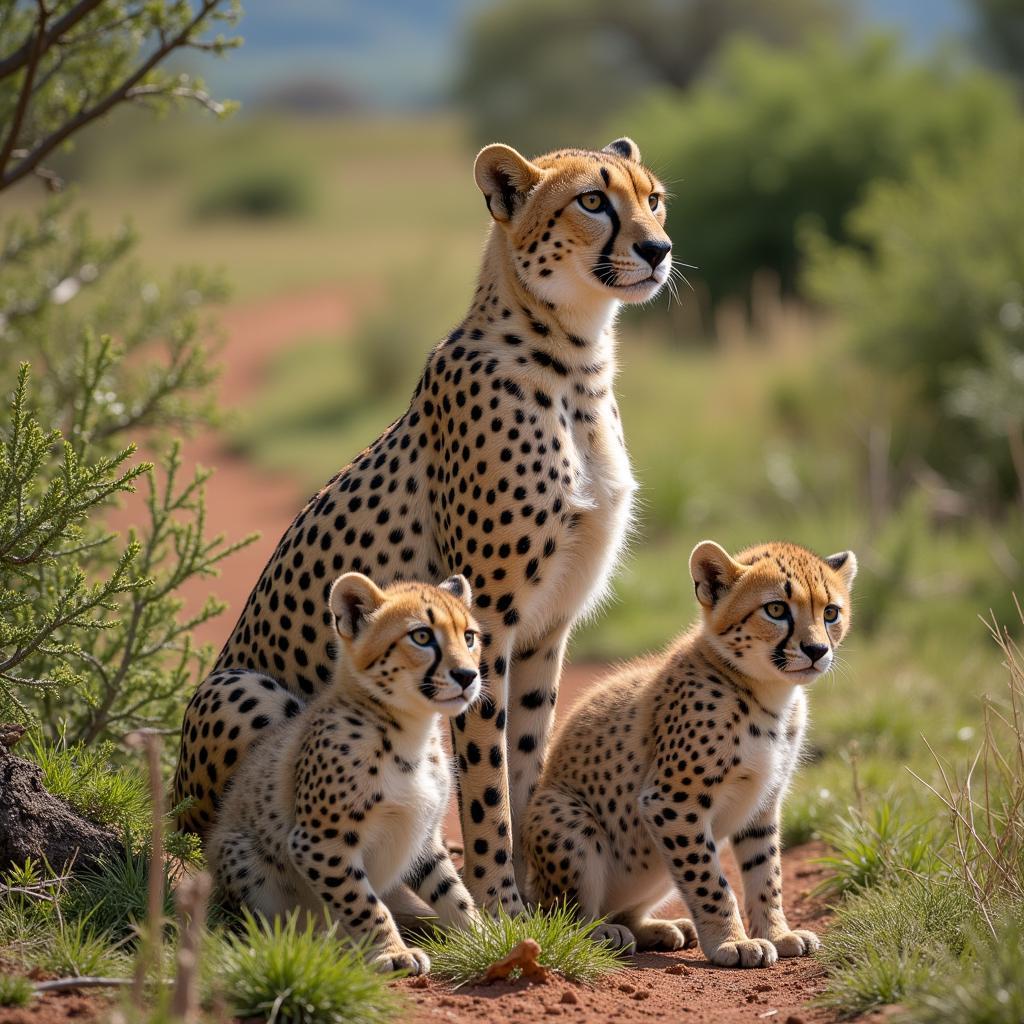African Abstract Angels: A Glimpse into the Spiritual Realm
African art is renowned for its vibrant colors, intricate patterns, and deep connection to spirituality. One captivating aspect of this rich tradition is the portrayal of angels, often depicted in abstract forms that transcend the limitations of realistic representation. These “African Abstract Angels” are not mere celestial beings but embodiments of ancestral spirits, divine protectors, and guardians of the soul.
The Evolution of Abstract Angels in African Art
The concept of angels in African cultures is deeply intertwined with animistic beliefs, where the natural world is seen as imbued with spiritual forces. These spirits are often associated with specific places, animals, or ancestors, and they play a crucial role in shaping the lives of individuals and communities.
In traditional African art, angels are rarely depicted in a literal, Western-style manner. Instead, they are often expressed through abstract forms, geometric patterns, and symbolic imagery. These forms can vary greatly across different regions and tribes, reflecting the diverse cultural traditions and spiritual beliefs of Africa.
For example, the Dogon people of Mali represent angels through intricate masks and sculptures that depict human figures with elongated limbs and exaggerated features. These stylized forms symbolize the power and grace of the spirits, while the intricate patterns etched into the masks represent the complex interplay of forces in the spiritual realm.
Symbolic Interpretations of African Abstract Angels
The abstract representations of angels in African art hold profound meaning and offer a window into the spiritual worldviews of these cultures. Here are some key interpretations:
- Ancestral Spirits: Angels are often seen as the spirits of ancestors who watch over their descendants from the spirit world. These figures are revered for their wisdom, guidance, and protection.
- Divine Protectors: In many African societies, angels serve as divine protectors, safeguarding individuals and communities from harm. They are invoked for guidance, healing, and prosperity.
- Guardians of the Soul: Angels are also seen as guardians of the soul, guiding individuals through life and beyond. They represent the connection between the physical and spiritual realms, and they help to ensure a smooth transition into the afterlife.
“African abstract angels represent more than just celestial beings; they embody the essence of spirituality and the interconnectedness of life,” explains Professor Ngozi Ndukwu, an expert on African art and culture.
The Impact of Abstract Angels on Contemporary Art
The tradition of depicting angels in abstract forms continues to inspire contemporary artists in Africa and around the world. Modern artists draw upon these ancient traditions to create works that explore themes of spirituality, identity, and the human condition.
In recent years, there has been a growing interest in incorporating abstract angel imagery into various artistic mediums, including painting, sculpture, and even digital art. This renewed focus reflects the enduring power and beauty of this ancient artistic tradition.
The Importance of Understanding African Abstract Angels
Understanding the meaning behind African abstract angels is not just about appreciating a specific artistic style; it’s about gaining a deeper understanding of the rich cultural and spiritual traditions of Africa. These artworks offer a glimpse into a worldview that is deeply connected to the natural world, the ancestors, and the divine.
FAQ (Frequently Asked Questions)
Q: What is the difference between angels in Western art and African abstract angels?
A: Western angels are typically depicted as human figures with wings, while African abstract angels are often represented through stylized forms, geometric patterns, and symbolic imagery.
Q: Why are angels so important in African culture?
A: Angels play a crucial role in African culture, representing ancestral spirits, divine protectors, and guardians of the soul. They provide guidance, protection, and a connection to the spiritual realm.
Q: How can I learn more about African abstract angels?
A: You can explore museums, galleries, and online resources dedicated to African art. You can also attend workshops and lectures given by experts on African art and culture.
Q: What are some examples of contemporary artists who use abstract angels in their work?
A: Contemporary artists like Cheri Samba, El Anatsui, and Romuald Hazoumé incorporate abstract angel imagery into their works, often exploring themes of spirituality, identity, and social commentary.
Q: What is the significance of using abstract forms to represent angels in African art?
A: The use of abstract forms allows artists to express the intangible essence of angels, their power, and their presence in the spiritual realm, without being limited by realistic representation.
Exploring the Spiritual Realm: A Journey into African Abstract Art
The captivating world of African abstract angels offers a unique window into the spiritual beliefs and artistic traditions of this vibrant continent. From ancient masks to contemporary installations, these abstract forms inspire us to connect with the unseen forces that shape our lives.


As you delve deeper into the world of African abstract angels, you will encounter a rich tapestry of symbolism, spirituality, and artistic expression. Let these captivating works inspire your own journey of exploration and discovery.


